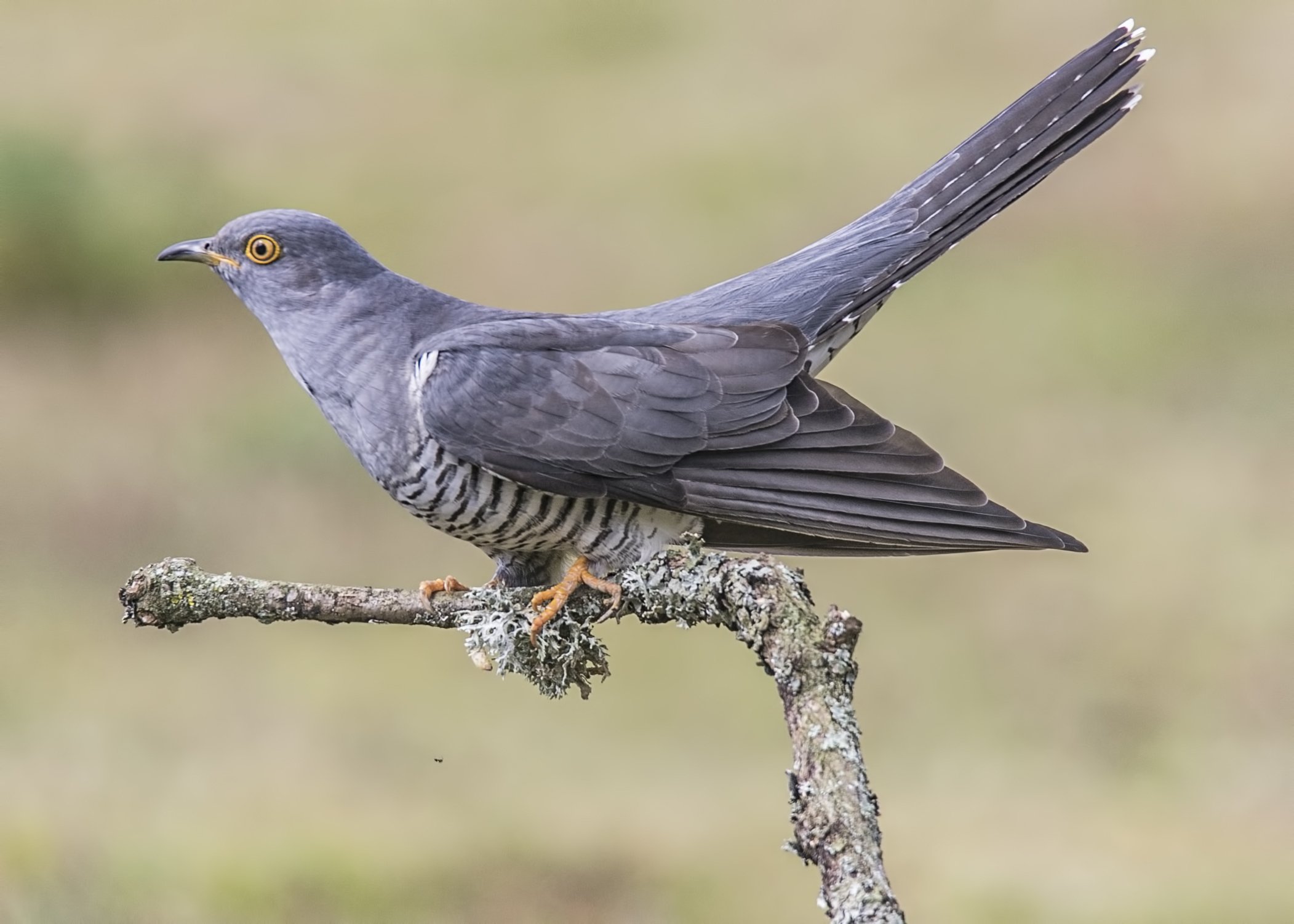I am following a cuckoo named Joe.
I should say, right up front, that I’m not literally following him, this slim grey bird who each spring undertakes a death-defying journey from tropical forests in Africa, across the Sahara, then over the Mediterranean Sea to Britain. And flies back again in fall. Instead, I’m watching a little flashing dot on a screen, a dot that represents the last known location of Joe’s electronic tag. Like pre-release convicts and political prisoners, he is equipped with a transmitter that reports where he is at all times.
I should also say that “Joe” would not be my first choice of name for a bird as compelling – and, in some ways, as scandalous - as a cuckoo. A bird which disguises itself as a hawk, scaring mother birds off the nest so it can steal in and deposit one egg of its own. By some extraordinary trick, cuckoos lay eggs that match the eggs already in the nest, fooling the unsuspecting foster parents into raising the foundling as their own.
I’d go with something that celebrates the bird’s bravery in migration, its cleverness, its ability to remain concealed even as its call reverberates in your ears: ““Wanderer”, perhaps, or “Joker”, or “Stealth”, or – let’s face it – “Delinquent”. But the people who paid thousands of dollars for the transmitter got the naming rights; I think my small donation paid for a fraction of a pixel on the map of Joe’s travels. And I don’t know who “Joe” was, except that most of the sponsors name their birds after family members – often dead family members, gifted a new presence in the world on the wings of a migratory bird.
Naming a bird – or any living creature – means connection, which brings both happiness and sorrow. I’m now hostage to Joe’s fate. I’m anticipating joy with every stage of Joe’s journey, visualizing the places he’ll go (and that I’ll never see), admiring how far his wings take him, cheering him on past obstacles. I will celebrate when his migration is complete, imagining him safely “home”. But I also know that one day I’ll feel sorrow, because at some point Joe’s luck will run out and that little flashing dot will wink no more.
“I hoped you haven’t named those fish”, says my friend as we gaze at the comets and shubunkins swimming happily in my garden pond. “You remember what happened last time”. The heron, she means, the heron who one day walked down my driveway as if he’d just stepped out of an Uber, strolling past my porch with a gleam in his eye. My first thought was to find my camera – A heron in my yard, what joy! – and by the time the second thought kicked in – No! No! Not my fish! – the heron was spearing Spot and Sparkles.
I would not have cried so much if they were, simply and anonymously, “the fish”, if I had not shared their lives.
In naming creatures, human or other-than-human, we mark them as individuals, with their own lives, their own stories; the bestowing of a name comes with a desire to protect. Newspaper editors know this, of course, which is why the daily body count from Gaza is much less compelling than the story that features one family, trying to survive among the rubble.
The blinking dot that represents Joe shows that his migration has just begun. A few days ago, he left his wintering grounds in the Democratic Republic of Congo, the second-largest rainforest on Earth. He has moved west, into the Republic of Congo, prompting me to consult an atlas, to search online for photos of his location; geography lessons at school were never so interesting. In the next week he will hopefully continue west towards the Atlantic coast, where he will gorge on insects to fuel the long flight across the Sahara.
Over the next few weeks, I will follow Joe’s journey. So many things could go wrong: insufficient fat reserves to propel his wings across the unforgiving desert; storm winds that push birds out over the Atlantic, to be lost at sea; illegal hunting in Malta.
Fortunately for Joe, he is unaware of these risks. He knows only the imperative to breed, to follow the ancient migratory pathways that will lead him to a place where generations of cuckoos have sung their welcome to summer.
I wonder where my cuckoo is. The cuckoo of my adult life, that arrives in late April to a small patch of trees by a rushing stream in northern England. The one whose bright ringing call of “Cuck-oo! Cuck-oo!” drops me through a rift in time and space, back to my childhood, when on early summer evenings we could hear the call drift down from the nearby wood. The magic wood, I called it, because you could find things there that could be found nowhere else, like the cuckoo, and thousands of bluebells, the markers of ancient woodland. One evening, lured by the song, Dad and I went to the wood, scanning every branch for a handsome grey bird with yellow eyes and feet, but we could not find it. The wood is gone now, turned to shiny new houses, and my dad is long dead, but for me they live again in every cuckoo’s call.
